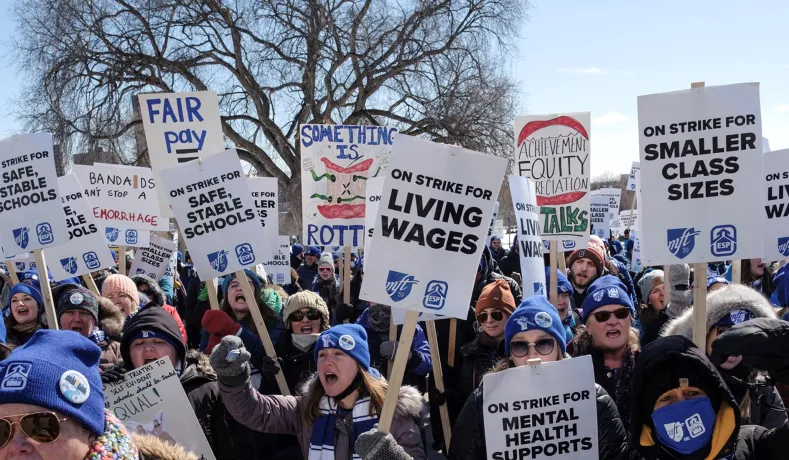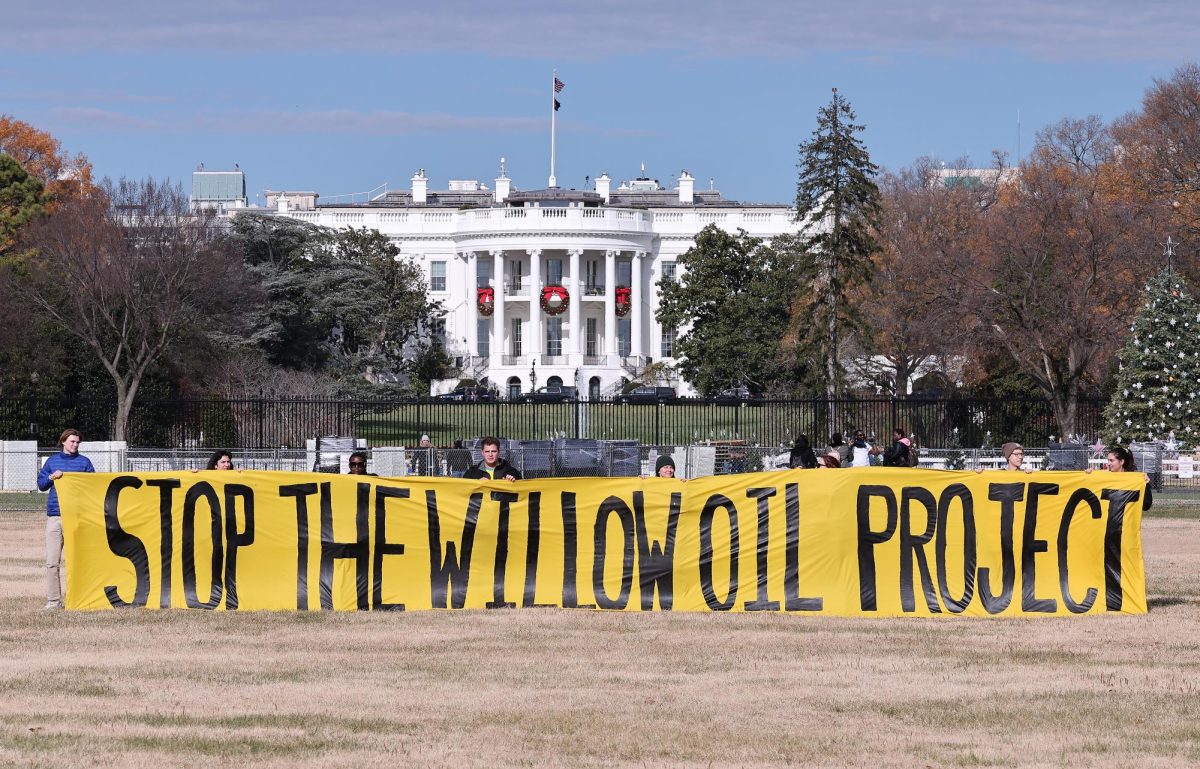The Willow Project: Internet’s Idea of the End of the World
The Willow Project was met with excessive indignation, but in typical American fashion, no one has bothered to address consumption.
April 5, 2023
The internet went feral when Biden approved the Willow Project on March 13. I remember opening my For You page on TikTok to find hundreds of videos of polar bears stranded on melting icebergs while oil refineries pumped tons of dark gases into the sky. The news continues to cover the issue with headlines like “Climate Change Now Irreversible” and “Willow Project: Disastrous for Planet Earth.” Climate activists are outraged, petitions are circulating online, and protests have occurred worldwide. The internet certainly paints the picture that the Willow Project is an unprecedently large operation that will mean the end of the climate as we know it. But is any of this true?
The Willow Project is an oil-drilling project proposed by the petroleum company ConocoPhillips. The company plans to drill in three sites (for 199 wells) in the National Petroleum Reserve in Alaska, which the federal government owns. The operation is expected to produce 180,000 barrels of oil per day.
Alaska’s economy is heavily dependent on the oil and gas industry. According to the Official Alaska State Website, 85% of the state budget is supplied by oil revenue. The Willow Project would deliver eight to seventeen billion dollars to the state of Alaska and the federal government. This would be incredibly beneficial to the state, especially considering its struggling economy. The promise of funding state projects, especially education, has created support in most of Alaska for the Willow Project.
Of course, people in areas near the expected sites are fearful of spills. For example, the National Petroleum Reserve in Alaska is home to several indigenous tribes and numerous endangered species. If a spill were to occur, it could damage hundreds of acres of villages and habitats. However, overall, the state of Alaska is supportive of the project.
I can’t say the same for the rest of the world. The threat of damage to land and the seemingly gigantic number of barrels of oil produced daily has sent the world into a frenzy. The idea that the Willow Project is of revolutionary size and efficiency has diffused rapidly, fueling a raging fire of petitions, protests, and dramatic headlines. But the Willow Project is hardly a first of its kind and certainly won’t be the last if we continue to consume at this rate.
According to the U.S. Energy Information Administration, as of January 2022, 35 refineries in the country produced over 180,000 barrels of oil per day. The largest producer was Saudi Aramco’s site in Port Arthur, Texas, which produced a whopping 626,000 barrels per day! And the other sites weren’t far behind it. The Willow Project may be big, but it is certainly not unprecedented; it’s just a baby compared to these refineries.
I do recognize that the Willow Project threatens the environment in its nature. Most oil it produces will be burned and will release millions of tons of carbon dioxide into the atmosphere, further contributing to climate change. But I would argue that the production is far less concerning than the consumption. Carbon dioxide is released when fossil fuels (in this case oil) are burned. When you drive your gasoline-powered car to work or school, you emit carbon dioxide. Heating for your home is produced by burning oil, releasing carbon dioxide. Even the internet relies on oil to power servers, meaning your phone, iPad, and the computer I’m typing this on emit carbon dioxide. It’s not only ignorant but almost hypocritical to complain about the increased oil production when the production is a result of consumption. Ironically, we sit in our cozy, heated homes, with all the lights on, complaining about climate change. If we continue to consume oil, refineries will continue to produce it. World Population Review reports that the United States consumes about 20 million barrels of oil daily, higher than every other country. If we want to reduce oil production and minimize the effects of climate change, we must start by minimizing our consumption.
Heather Gautreaux, Environmental Science teacher at Zachary High, further explained the relationship between our consumption and increased production:
“I think we as a global society need to cut back on consumption, in general. We just finished our unit on pollution in AP Environmental Science… humans are a very wasteful species. Right now, the energy sources that drive our manufacturing processes to fuel our consumption addiction are almost all fossil fuel based, which compounds the environmental issues that we have with burning fossil fuels.”
Even high schoolers can reduce their consumption of oil. For example, choose to carpool with friends to school instead of driving separately; it saves both oil and money. Another easy way to reduce your footprint is to turn off the lights when not using them because electricity is powered by burning oil. There are hundreds of ways we, as a society, can limit the amount of oil we consume. We only have one planet. To protect it for generations to come, we need to start with reduced consumption.




















































